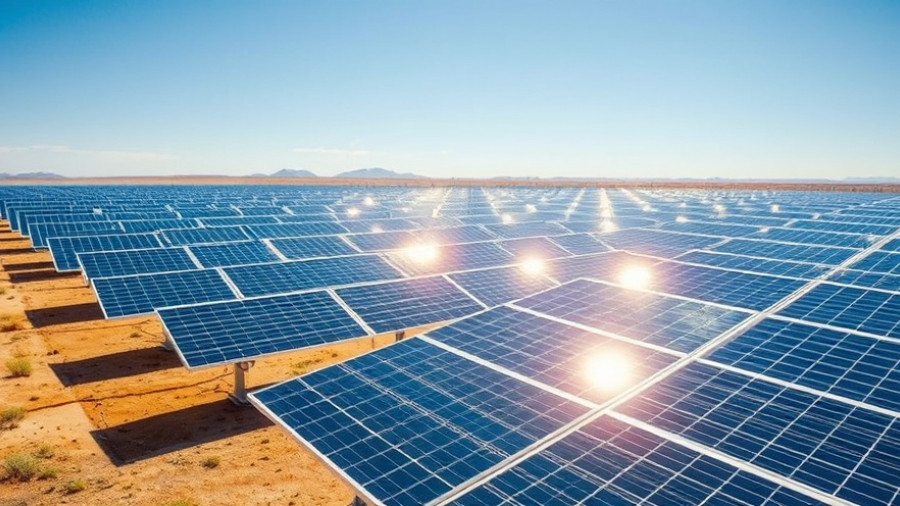
Meta Takes Bold Step: 1 GW of Solar Power Contracts
This week, the tech giant Meta, known for its platforms like Facebook, Instagram, and WhatsApp, made headlines by signing three significant deals focused on solar energy. The total procurement amounts to nearly 1 gigawatt (GW), emphasizing the company’s dedication to sustainability amid its ambitious AI projects. With these recent agreements, Meta’s solar power purchases this year exceed 3 GW, showcasing its commitment to renewable energy.
Why Solar Energy? The Future of Tech and Sustainability
As tech companies grapple with increasing demands from their data centers, solar energy has emerged as a particularly attractive option. Its cost-effectiveness and rapid deployment capabilities make it a go-to source for electricity. Meta’s latest agreements include two projects in Louisiana, which will provide environmental attributes for a combined 385 megawatts of electricity. These projects are expected to be completed within two years, while a separate agreement in Texas involves 600 megawatts coming from a large solar farm, starting operations in 2027.
The Role of Environmental Attribute Certificates
Central to Meta's approach are Environmental Attribute Certificates (EACs), which allow the company to claim renewable energy use even when the energy isn’t directly linked to its operations. While these certificates can provide a layer of transparency and accountability, they have faced criticism from experts who argue they may mask the true carbon footprints of such operations. Critics assert that the widespread reliance on EACs means companies might not be incentivized to directly contribute to the construction of new renewable energy resources.
Critiques and Challenges: Are EACs Enough?
The introduction of EACs was a significant step in corporate sustainability efforts, especially when renewable energy sources were more expensive compared to fossil fuels. EACs offered a flexible solution, enabling companies to support green projects financially while offsetting their emissions. However, the recent sharp decline in renewable energy costs raises important questions about EAC efficacy. Industry experts contend that for real progress to occur, companies like Meta must invest in new renewable capacity directly rather than relying on certificates alone.
A Broader Industry Trend: Tech Giants Embrace Sustainability
Meta’s solar investment is part of a larger trend where tech giants are increasingly prioritizing renewable energy to meet soaring energy demands. With digital infrastructures expanding at an unprecedented rate, there’s a pressing need for sustainable solutions. The shift towards solar power is not just beneficial for the environment; it also aligns with economic considerations. As solar energy becomes the preferred choice over traditional fossil fuels, the industry is evolving toward a greener future.
Looking Ahead: Future Opportunities in Renewable Energy
As Meta and other tech companies like Apple and Google amplify their investments in renewable energy, the pressure mounts to make genuine contributions toward sustainability. The pivotal question remains: will tech giants continue to use EACs to meet their sustainability goals, or will they take proactive measures to build additional renewable capacity? Determining this path is critical for the tech industry, especially as it faces scrutiny over its environmental impact.
Call to Action: What Can Small Business Owners Learn?
For small business owners looking to harness AI and tools effectively, the rising trend towards renewable energy offers valuable insights. Companies increasingly recognize the importance of sustainable practices not only for compliance but for ethical responsibility and brand integrity. Those in the small business sector should consider how adopting renewable strategies can enhance their reputation and operational efficiency, leading to long-term benefits.
Ultimately, in a world increasingly powered by AI and technology, investing in sustainable energy can yield both financial and environmental dividends. Embracing renewable energy solutions represents a forward-thinking approach that can distinguish businesses in the competitive landscape.
 Add Row
Add Row  Add
Add 




Write A Comment